
The UN has reported that the number of Lebanese in need of humanitarian assistance stands at 2,122,634. (Credit: João Sousa/L'Orient Today)
How does a country sound as it collapses?
Summer in Lebanon unfurled a stark duality, juxtaposing vibrant festivities with the pervasive grip of despair that blankets the country.
From congested restaurants and exclusive beaches to bustling festivals and vibrant nightclubs, Lebanese expatriates seem to be fascinated by the country they left behind or, in some cases, fled — a distraction from the country’s grim reality that political leaders eagerly embraced.
Unsurprisingly, summer tourism is a lifeline for a beleaguered economy, with profits this year projected to reach an estimated $3.5 billion, according to caretaker Tourism Minister Walid Nassar.
The tourist season also perpetuates the nostalgic notion that Lebanon, a resilient phoenix, is already in the midst of revival.
Amid the lively festivities, however, the low-frequency rumblings of collapse reverberate. These are the groans of chronically ill patients, unable to afford essential treatment, and the stifled sobs of mothers reluctantly withdrawing their children from school. It’s a subsonic despair that permeates a country where an estimated 80 percent of the population has been plunged into poverty.
“While a small minority of newly privileged individuals, paid in fresh dollars, may be able to frequent the capital's restaurants, most Lebanese are quietly grappling with the harsh realities of survival,” said Rima Majed, a sociologist at the American University of Beirut (AUB).
Fill up on bread
Away from the flashy coastal restaurants, the echoes of hunger become unmistakable.
In Arsal, situated on the fringes of the Bekaa Valley, a soldier named Osama al-Atrache makes a daily pilgrimage to the local grocery store, trying to provide for his family as best he can. His modest budget stretches only to five loaves of bread, just enough to feed his five children.
As the month progresses, this expenditure steadily chips away at his meager salary, which has dwindled from $1,200 to $80 due to the precipitous depreciation of the Lebanese lira, despite the additional income he earns from working at a local garage.
“The grocer agrees to supply me with the basic necessities, and I repay him by the end of the month,” Atrache said, “in small installments, ranging from $10 to $50.”
“For many, meat is no longer an option,” said AUB sociologist Rana Sukarieh. “Some parents have reduced the number of daily meals and feed their children mainly bread, because it fills them up.”
“But this could pose problems for their development,” she added.
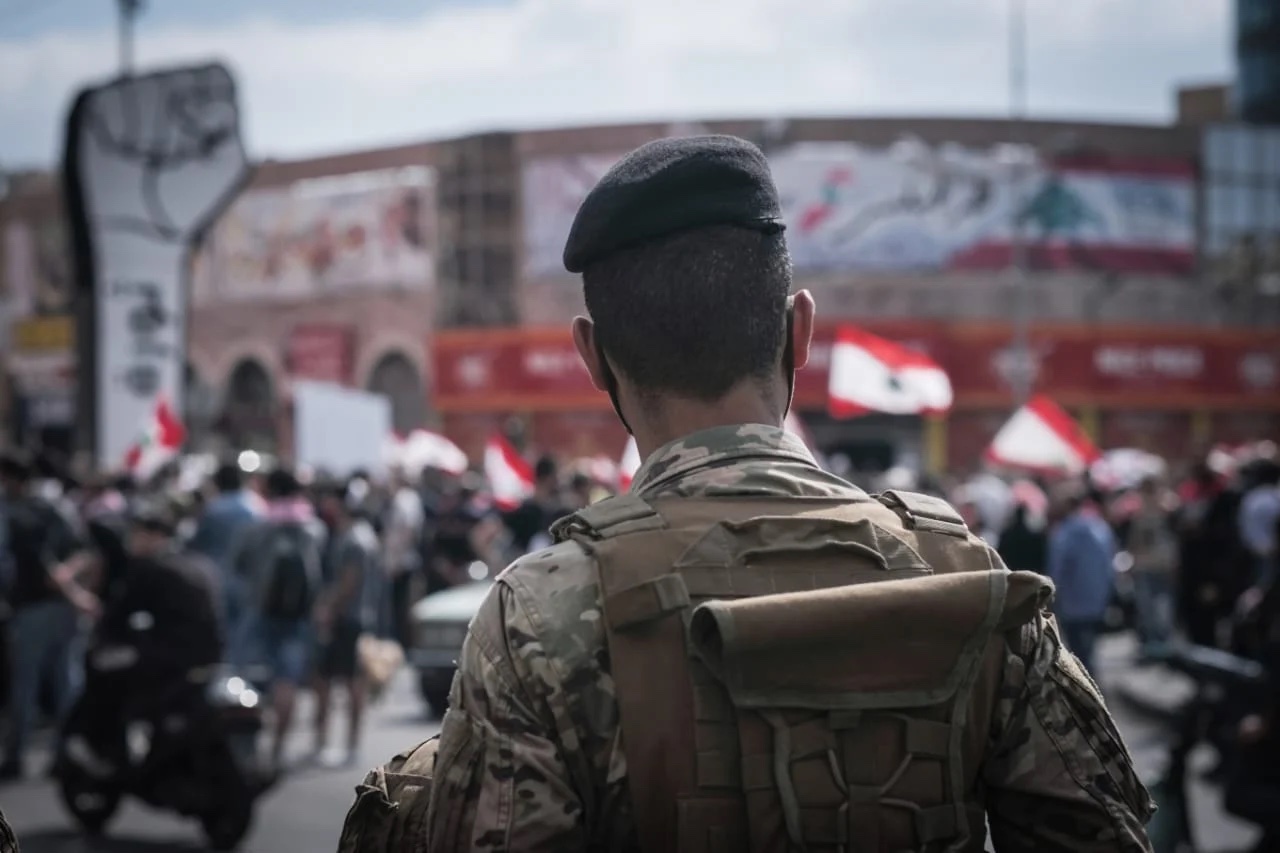 The values of a soldier's salary fell to $80 with the depreciation of the Lebanese lira. (Credit: João Sousa/L'Orient Today)
The values of a soldier's salary fell to $80 with the depreciation of the Lebanese lira. (Credit: João Sousa/L'Orient Today)
According to a UNICEF report published in June, three-quarters of under-fives in Lebanon live in food poverty. Of these, a quarter — around 85,000 children — live in extreme food poverty, putting them at risk of stunted growth and increasing the risk of infant death by up to 12 times.
‘Education has become a dream’
Mrs. Flita maintains the noble silence of someone who has lost everything but her pride.
“I do everything I can to show that we are not in need,” she said.
The salary of her husband Mohammad, a soldier, has been slashed 15-fold.
Nonetheless, as he leaves home at 3:30 a.m. to drive trucks in Beirut, the mother of five, whose highest priority is her children’s education, can hardly contain her tears.
“We can no longer afford the transportation fees for our children to attend school,” she said. “Most of the time, the teachers are on strike. Education has become a dream.”
“At the beginning of the new school year, our eldest was supposed to enroll at Zahle University,” she added, “but she’ll be staying home due to a lack of funds for the minivan.”
Flita is not the only parent who can no longer afford to send their children to school.
Others can still afford to send their children to school, but no longer to private schools, whose fees are set to triple again at the start of the new school year, according to Sukarieh.
According to the World Bank, 55,000 schoolchildren switched from private to public schools in the 2020-21 school year.
“Theoretically, we should be happy about this, because it means more equality, but in reality, it's a disaster,” Sukarieh said. “Public schools are in a catastrophic situation, with poor living conditions for teachers having an impact on teaching.”
“This will lead to a decline in children’s skills, the impact of which we won’t see for another 10 or 15 years,” she said.
“Malnourished children who drop out of school represent a loss of human capital,” concurred economist Jad Chaaban.
In his view, the current crisis takes a profound and often overlooked toll. “It’s the cost of a lost generation in terms of missing GDP, debt, etc.”
“In the long term, this is equivalent to doubling the monetary losses, estimated at $60 billion,” Chabban added. “Nobody wants to talk about it, yet these are Lebanese people we’re losing.”
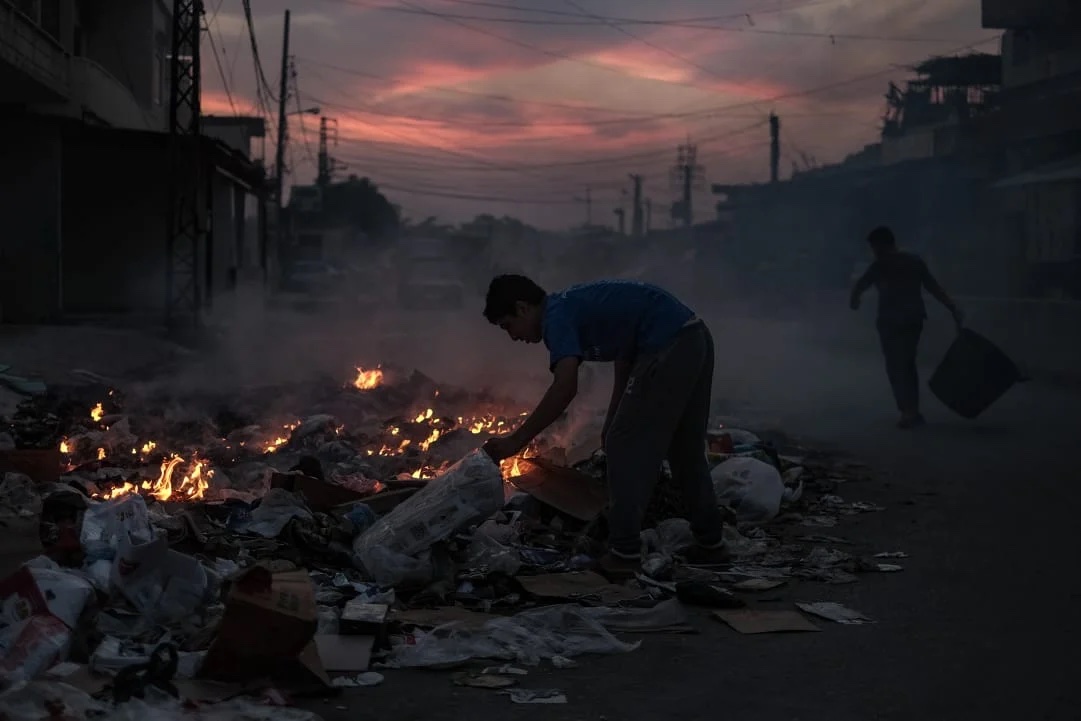 According to a UNICEF report, published last June, three quarters of children under five in Lebanon live in food poverty. (Credit: João Sousa/L'Orient Today)
According to a UNICEF report, published last June, three quarters of children under five in Lebanon live in food poverty. (Credit: João Sousa/L'Orient Today)
Foster children, targets of violence and trafficking
The deceptive tranquility of a wood or a poorly lit road is sometimes broken by orphaned children’s cries. On July 19, an infant was found in a cardboard box on the doorstep of Tripoli municipality.
The following day, two babies were saved by Father Madji Allawi, founder of the Bonheur du ciel association, under the Nahr Ibrahim bridge.
On Aug. 2, a little girl was discovered in a pine forest on the outskirts of the Chouf village of Sibline.
In her poorly ventilated office in Choueifat Amira Sukkar, president of the Union for the Protection of Children (mandated by the Justice Ministry to care for minors and juvenile delinquents), receives signals all day long from this abandoned generation, sometimes from the day they are born.
“It’s not just a question of poverty, but also of values,” said Sukkar between two phone calls. “There have always been illegitimate children placed on the doorstep of a church or town hall in Lebanon.”
“But I can't understand a mother abandoning her child in a plastic bag, a cardboard box, or a garbage can,” she added. “The standards we live and see in Lebanon are far below what we’ve been used to until now.”
In addition to abandoned children, cases of child abuse are piling up on her desk.
At the beginning of July, Sukkar, like Lebanon’s other internet users, was horrified to come across videos of abused children on social media. She investigated and discovered that it was at the Garderêve nursery in Jdeideh.
“It wasn’t our job, but we couldn’t stand by idly watching those videos,” Sukkar said. “That day, we finished work past midnight.”
“With the ongoing collapse, most professionals left the country, whether in the police, education or health,” she explained. “There are still some people doing a good job, but they’re all overworked.”
In the gaping fissures of this beleaguered system, a new form of criminality lurks.
“Human traffickers are most active in financially distressed countries, where their opportunities are abundant,” Sukkar said.
Given the lack of means to stop them, they consistently remain one step ahead of police. “We’re left with no choice but to make spontaneous visits to reception centers in an attempt to ensure whether a child under protective care has fallen victim to trafficking,” she explained.
“Regrettably, due to the scarcity of well-trained and adequately compensated social workers, this has become an insurmountable challenge,” she added.
Just days after the shocking discovery of two newborns in a cardboard box, Father Allawi took to social media to warn that a group had created a fraudulent Facebook account using his identity to facilitate the sale of adopted children in exchange for money.
Despite the widespread decay, there has been a significant 38-percent decline in the crime rate during the first seven months of 2023, as reported by the Internal Security Forces (ISF), following a surge in 2019 and 2020.
Conversely, as the crisis deepens, violence against children, as reported by the NGO Himaya, is on the rise, according to its director Rose Habchi Daher.
“We documented 2,412 cases in 2022, compared to 2,352 in 2020, and already 1,240 cases by May 2023,” she said.
One of the main drivers behind this violence, she said, is “the socio-economic and political crisis, which is eroding the emotional well-being of families and exacerbating their lack of resources to fulfill their basic needs, from education to healthcare.”
Falling ill is a poverty trap
Sitting on Atrache’s lap, his three-year-old son remains oddly silent, devoid of any gestures or words.
This worrying calm is due to spastic cerebral palsy, which makes his legs so stiff he can barely stand.
An operation might have helped him walk, but the soldier can’t afford it.
In the meantime, he receives free treatment at the dispensary the NGO Amel runs in Arsal. “Because I can’t afford to drive to the army physiotherapy center in Jdeideh,” Atrache said.
Six-year-old Nabil al-Ragheb listens to the quiet footsteps of nurse Ali Nabih Hamieh as he prepares a blood transfusion at the Elias Hrawi Government Hospital in Zahle.
Nabil’s father, Walid, can’t afford the crucial bone marrow transplant that his son desperately needs. Nabil suffers from thalassemia major, which requires frequent blood transfusions and ongoing treatment to manage the complications of iron overload — therapy he will need for the rest of his life.
Unfortunately, even Nabil’s current treatments are prohibitively expensive for his father, an employee at Caritas, as is travel to the Fayadiyeh Care Center for chronic illnesses, where a symbolic sum is charged for each transfusion.
Luckily, the Lebanese NGO Karma was able to take up Nabil’s case, covering the treatment of 89 children from poor families suffering from thalassemia.
“Patients with rare diseases or chronic illnesses are the first to be affected by the crisis,” said pediatrician and NGO co-founder Layal Issa.
In the drab hospital, she strives to keep up her good humor for the children and for the nurses who look after them. She knows that Ali, with 14 years of experience under his belt, has to work midnight shifts to supplement his meager salary.
“We talk about emergency health poverty,” Chaaban explained. “In other words, people who fall into poverty because of exceptional health expenses.”
“All the public and private funds that used to cover the treatment of chronic illnesses are now useless,” he added. “It’s up to patients to pay their hospital bills in advance, in US dollars.”
Like Walid and Omar, most Lebanese are unable to pay prohibitive hospital fees and depend on solidarity initiatives or humanitarian aid.
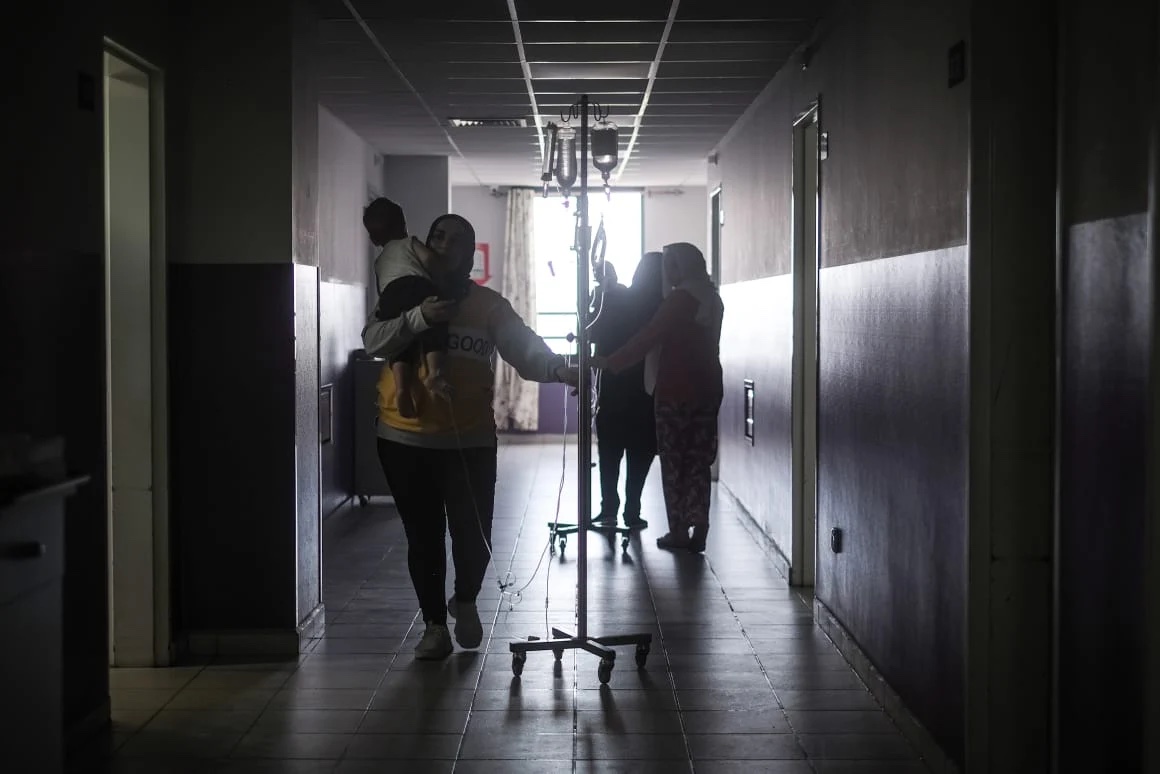 With the crisis, the Health Ministry's budget dedicated to drugs to treat cancer fell from $120 million to $25 million. (Credit: João Sousa/L'Orient Today)
With the crisis, the Health Ministry's budget dedicated to drugs to treat cancer fell from $120 million to $25 million. (Credit: João Sousa/L'Orient Today)
The UN has reported that the number of Lebanese in need of humanitarian assistance stands at 2,122,634 — more than the number of Syrian and Palestinian refugees combined.
At the end of March 2023, however, the UN managed to secure only 13 percent of the $317 million needed for its health program. Since the crisis, the Lebanese Health Ministry’s budget for cancer drugs has dropped from $120 million to $25 million.
This gap is filled by discreet but effective solidarity initiatives — like that provided by Karma, which was set up to raise funds to pay for a bone marrow transplant for Myriam, a little girl needing leukemia treatment.
With the crisis, the Health Ministry’s budget for cancer drugs has dropped from $120 million to $25 million.
The Barbara Nassar Foundation helps adults with cancer. This independent association not only covers the cost of drugs and hospitalization, but also organizes art therapy sessions and social activities for hundreds of patients and their families.
Reproducing the status quo
“Some benefit from informal solidarity or humanitarian aid,” said Sukarieh, “and then there are those who are helped by political parties who, through their charities, support their communities.”
In his office in Haret Hreik, where a portrait of Hezbollah leader Hassan Nasrallah adorns the wall, social worker Afif Shoman, head of Wa Ta3aouanou (Cooperate), explains that this organization covers the health expenses of anyone who contacts him on Twitter (also called X).
“We receive 300 requests for assistance a day,” he said. “We study the situation of the applicants with the municipalities, to find out their socio-economic conditions and, depending on what we find, we support some of them at 10 percent, others at 100 percent.”
Shoman said they offer help to Lebanese of all denominations and localities, adding that donors include “Hezbollah, which covers 30 percent of the costs.”
Burdened with some 2,400 funding applications, Wa Ta3aouanou temporarily stopped accepting new applications at the end of July.
“Wa Ta3aouanou and other politically-affiliated organizations are doing a relatively good job, given the absence of the state,” Sukarieh said, “but at the same time, they are reproducing the status quo of Lebanese dependence on traditional parties.”
For her part, Majed goes further, arguing that “these religious and political organizations help us understand both how the Lebanese survive, and why they don’t protest more.”
In other words, such financial assistance is merely palliative, a cheap plaster for crisis-battered Lebanese.
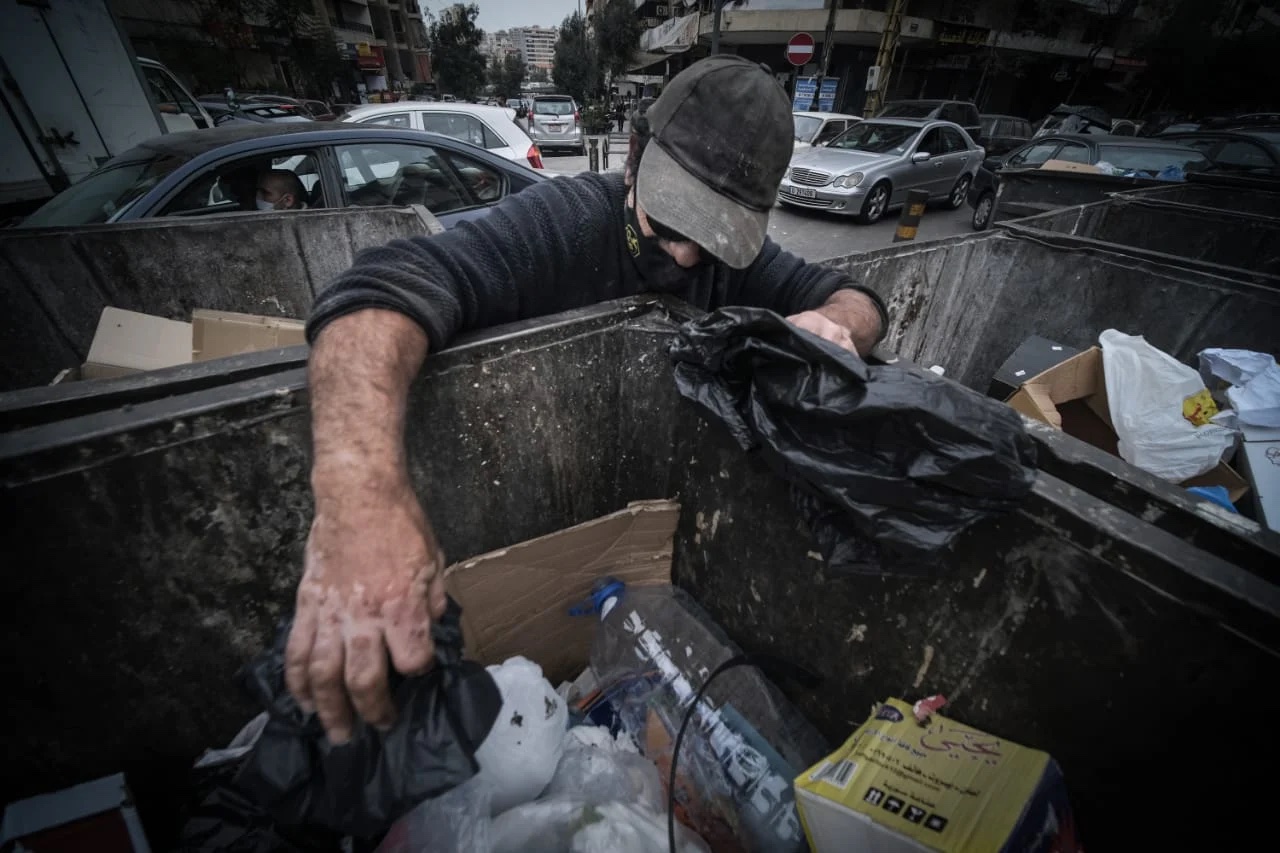 You only have to walk away from the rowdy restaurants on the coast to hear the empty bellies of children gurgling. (Credit: João Sousa/L'Orient Today)
You only have to walk away from the rowdy restaurants on the coast to hear the empty bellies of children gurgling. (Credit: João Sousa/L'Orient Today)
For Edgar Awad, there’s no question of being muzzled by a helping hand with partisan affiliation.
“You are forced to become a sheep within a party or [stooge for] or a zaim [religious and political leader], and I hate them all,” said Awad, a 41-year-old father of two.
Before the crisis descended in 2019, he was preparing his family’s visas to move to Europe.
Awad is a member of the Cry of the Depositors, an association of people who have decided not to remain silent.
He stormed his bank branch in Antelias with a can of gas and a box of large matches on July 17, demanding the $15,000 left in his account.
“I couldn’t wait any longer,” Awad said. “I had already lost $70,000.”
“But beyond the financial losses,” he added, “I had squandered three years of my life and that of my children.”
He watched his life unravel before his eyes, maintaining his composure as insanity surrounded him.
“The immense stress I’ve endured is undoubtedly taking a toll on my health,” Awad said, adding that in the span of three years, he has become a shell of his former self.
“Yet I remind myself that it could be far worse,” he said. “Others have gone mad or shot themselves in the head.”
The end of a taboo
Mental health is the background noise of Lebanon’s crisis. No one can escape it. “Our marriage is very much affected,” Mrs Flita said. “My husband and I are tearing each other apart because of the situation. It’s suffocating.”
“I’ve thought about suicide,” said Mahmoud al-Hojeiri, a 60-year-old retired military officer.
His $80 monthly pension is a far cry from the $500 he needs to purchase the anti-rejection drugs his son — to whom he donated his own kidney — needs every month.
“If my son is sick and I can't find the medication,” he said, “either I kill someone or I kill myself.”
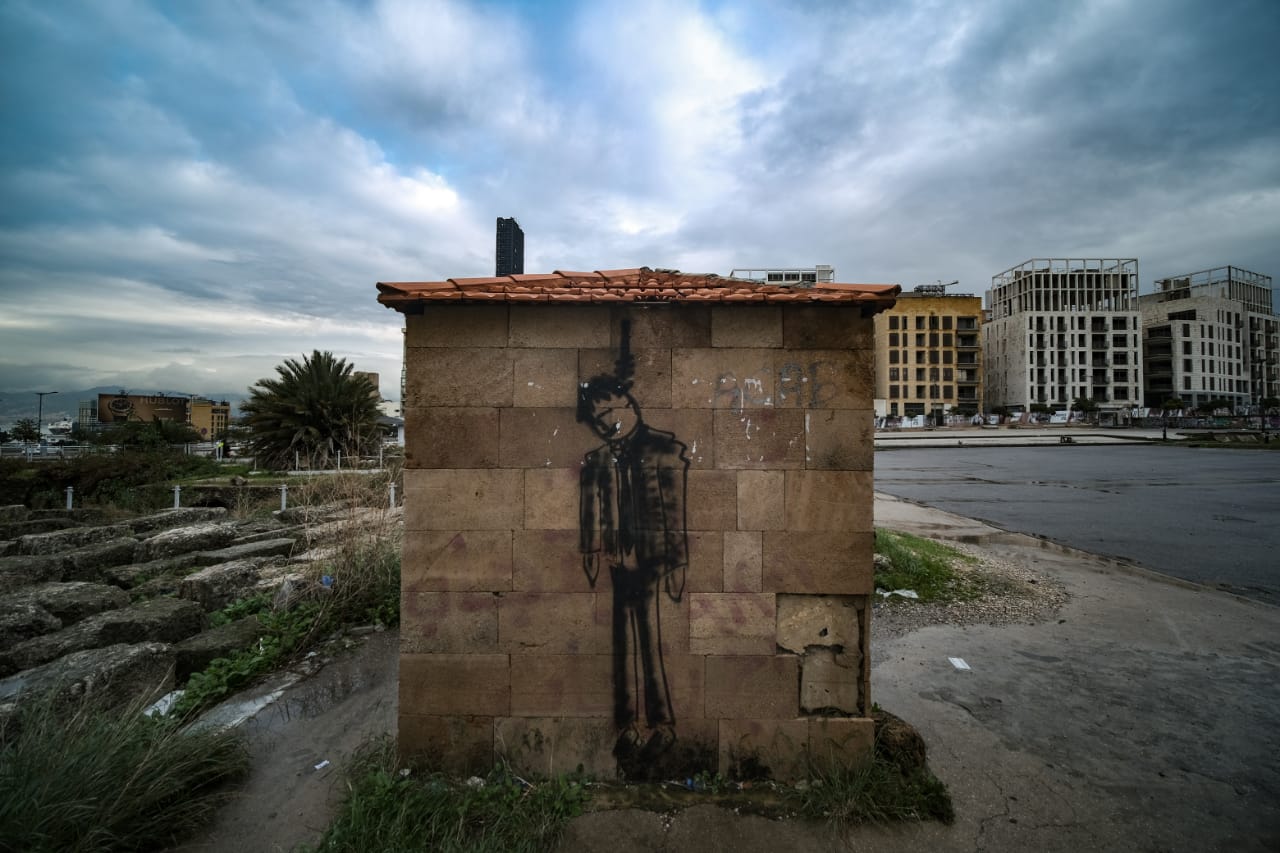 The national emergency number to prevent suicide, created by the NGO Embrace in 2017, is so busy that it now operates 24 hours a day. (Credit: João Sousa/L'Orient Today)
The national emergency number to prevent suicide, created by the NGO Embrace in 2017, is so busy that it now operates 24 hours a day. (Credit: João Sousa/L'Orient Today)
The national suicide prevention hotline, established by the NGO Embrace in 2017, has seen such overwhelming demand that it now operates round the clock. In 2020, the hotline number, 1564, received 6,000 calls; in 2021 the number was 8,959, and 12,481 calls in 2022.
According to Embrace co-director Myriam Zarzour, this increase is “linked to the multidimensional crisis, which is causing an increase in stress and vulnerability factors.”
For this psychiatrist, this is paradoxically a reason for hope.
“One of the phenomena provoked by the successive crises in Lebanon is the need to express oneself around mental health,” Zarzour said. “Before, it was a taboo subject. Today, people talk about it and encourage each other to seek help.”
This article was originally published in French in L'Orient-Le Jour. Translation by Sahar Ghoussoub.